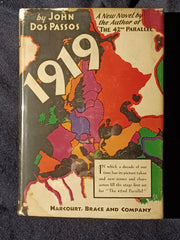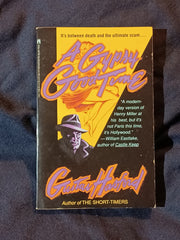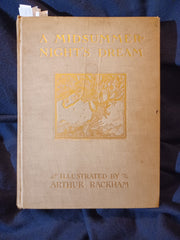Dr. Sevier by George W Cable. Inscribed by Geo. Cable
Dr. Sevier by George W Cable. James R. Osgood and Company. 1885. Inscribed, "To Harold Anderson/ from Go.W.Cable/ New York Oct 10, 1884." in Cable's handwriting. Some wear to cover edges with a 1/4" nick on the leading edge of the front cover. Pages lightlly tanned but still quite flexible. There is slight separation at page 286, but wih that, the binding is still tight. Otherwise, no previous owner markings. No tears, folds or creases to pages. Not ex-library, not remaindered and not a facsimile reprint. For sale by Jon Wobber, bookseller since 1978. DH11b
"George Washington Cable (October 12, 1844 – January 31, 1925) was an American novelist notable for the realism of his portrayals of Creole life in his native New Orleans, Louisiana. He has been called "the most important southern artist working in the late 19th century", as well as "the first modern southern writer."[1] In his treatment of racism, mixed-race families and miscegenation, his fiction has been thought to anticipate that of William Faulkner.
He also wrote articles critical of contemporary society. Due to hostility against him after two 1885 essays encouraging racial equality and opposing Jim Crow, Cable moved with his family to Northampton, Massachusetts." - Wikipedia
"Dr. Sevier, by George W. Cable (1882), is one of the author’s group of stories of life in New Orleans. The time of the action is just before the war, when the city was at the height of its prosperity. Dr. Sevier, the brusque, laconic, skillful, kind-hearted physician, is less the central figure than his young beneficiary, John Richling, the son of a rich planter, who having estranged his family by marrying a Northern girl, has come to the metropolis of the South to earn his living. The struggle of the Richlings, unequipped for the battle of life, against poverty and sickness, forms the plot of the story, which is glowing with local color and filled with personages peculiar to the place and time. There is no plot in the sense of a complicated play of forces, or labyrinth of events; but the interest lies in the development of character under conditions supplied by an untried environment. The scope of the book is wide and the detail extremely minute." - Bartleby.com
"George Washington Cable (October 12, 1844 – January 31, 1925) was an American novelist notable for the realism of his portrayals of Creole life in his native New Orleans, Louisiana. He has been called "the most important southern artist working in the late 19th century", as well as "the first modern southern writer."[1] In his treatment of racism, mixed-race families and miscegenation, his fiction has been thought to anticipate that of William Faulkner.
He also wrote articles critical of contemporary society. Due to hostility against him after two 1885 essays encouraging racial equality and opposing Jim Crow, Cable moved with his family to Northampton, Massachusetts." - Wikipedia
"Dr. Sevier, by George W. Cable (1882), is one of the author’s group of stories of life in New Orleans. The time of the action is just before the war, when the city was at the height of its prosperity. Dr. Sevier, the brusque, laconic, skillful, kind-hearted physician, is less the central figure than his young beneficiary, John Richling, the son of a rich planter, who having estranged his family by marrying a Northern girl, has come to the metropolis of the South to earn his living. The struggle of the Richlings, unequipped for the battle of life, against poverty and sickness, forms the plot of the story, which is glowing with local color and filled with personages peculiar to the place and time. There is no plot in the sense of a complicated play of forces, or labyrinth of events; but the interest lies in the development of character under conditions supplied by an untried environment. The scope of the book is wide and the detail extremely minute." - Bartleby.com














